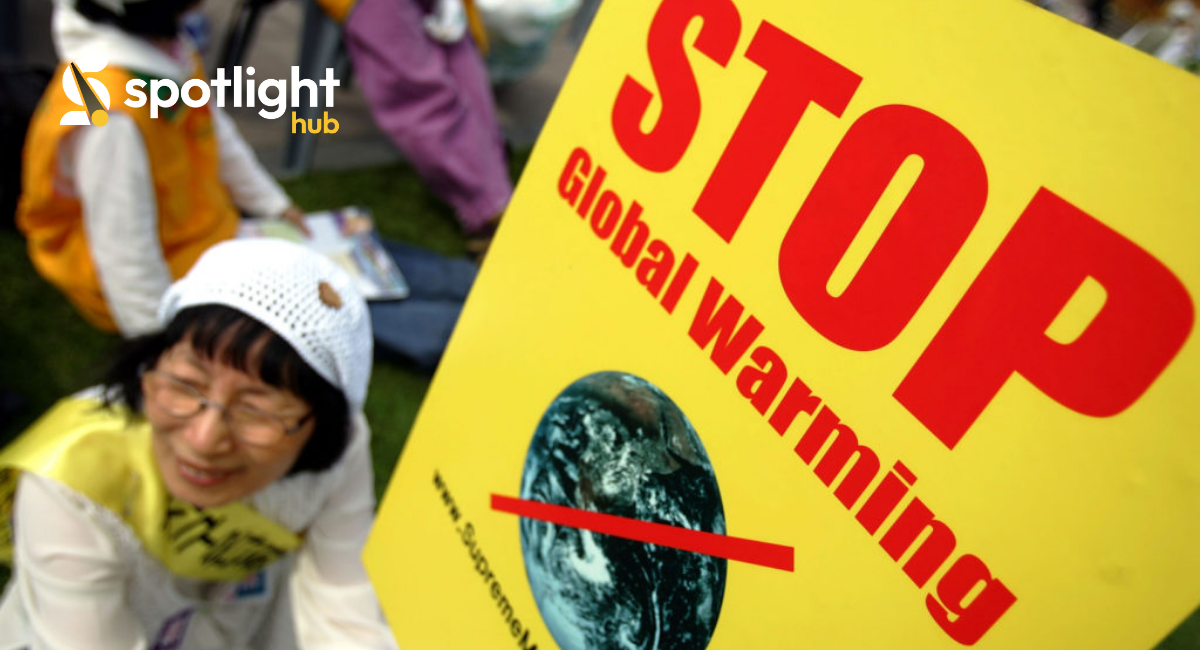Climate change is no longer just an environmental issue; it is one of the defining political challenges of our time. As the effects of global warming become increasingly evident, governments worldwide are being forced to act, with policies and agreements designed to combat the crisis. However, the political response to climate change is complex and often shaped by economic, social, and ideological factors. In this blog, we will explore how global politics are influencing climate change policies, the progress made so far, and the challenges that lie ahead.
Global Climate Policies: What’s Being Done?
1. The Paris Agreement
One of the most significant international efforts to combat climate change is the Paris Agreement, adopted in 2015. The agreement marked a major step forward by bringing together nearly every country in the world to set targets for reducing carbon emissions. The goal is to limit global temperature rise to well below 2 degrees Celsius, with an aspiration to limit the increase to 1.5 degrees Celsius above pre-industrial levels.
Under the Paris Agreement, countries have committed to submitting nationally determined contributions (NDCs)—individual climate action plans that outline how each nation will reduce its greenhouse gas emissions. While the agreement is a landmark achievement, the challenge remains in ensuring that countries meet their commitments, particularly as many nations face economic and political pressures that complicate their ability to take swift action.
2. Carbon Pricing and Emission Reduction Policies
In addition to international agreements like the Paris Accord, many countries have implemented carbon pricing mechanisms to incentivize companies to reduce emissions. Carbon taxes and cap-and-trade systems are the two primary tools used to put a price on carbon emissions. By making polluting industries pay for their carbon emissions, these policies aim to encourage businesses to adopt cleaner technologies and reduce their environmental footprint.
For instance, countries like Sweden and Canada have implemented carbon taxes, while the European Union has a well-established cap-and-trade system. These policies have been successful in reducing emissions, but the challenge remains in getting more countries to adopt such measures, particularly in developing nations where economic growth often takes precedence over environmental concerns.
3. Investment in Renewable Energy
Governments are also increasingly investing in renewable energy sources like wind, solar, and hydroelectric power as part of their climate policies. Transitioning to clean energy is considered one of the most effective ways to reduce global carbon emissions, as the burning of fossil fuels for energy production is the largest contributor to climate change.
Countries such as Germany and Denmark have been at the forefront of this transition, with ambitious plans to phase out coal and increase the share of renewables in their energy mix. The European Union’s Green Deal, which aims to make Europe the first climate-neutral continent by 2050, is one of the most comprehensive and ambitious climate policies to date.
However, shifting to renewable energy is not without its challenges. It requires significant investment, technological innovation, and policy support to make renewables affordable and accessible. Furthermore, the transition can be politically contentious in regions that are heavily dependent on fossil fuel industries, where job losses and economic disruption are concerns.
4. Climate Change Adaptation and Resilience
While reducing emissions is critical, it’s also essential to focus on climate change adaptation—preparing for the inevitable impacts of climate change that we are already experiencing. Rising sea levels, more frequent extreme weather events, and changing agricultural patterns are just a few examples of how global warming is already affecting the planet.
Governments are working on policies to adapt to these changes and build resilience in vulnerable communities. This includes investing in infrastructure that can withstand floods, droughts, and heatwaves, as well as supporting farmers who are dealing with altered growing seasons. International organizations, such as the United Nations, also play a role in helping developing countries prepare for and cope with the impacts of climate change.
The Political Challenges of Climate Change
1. Economic Interests vs. Environmental Action
One of the biggest hurdles in the fight against climate change is the economic interests of powerful industries that rely on fossil fuels. In many countries, the oil, gas, and coal industries are deeply integrated into the economy, providing jobs, tax revenue, and energy security. As a result, political leaders face a difficult balancing act: promoting climate action while protecting jobs and economic stability in industries that contribute to global warming.
In some cases, this has led to political resistance to climate change policies. For example, in the United States, the decision to pull out of the Paris Agreement under President Trump was partly driven by concerns over the economic impact of emissions reduction policies on jobs in coal and oil industries. Similarly, countries like Brazil have faced criticism for rolling back environmental protections to promote economic growth through deforestation and industrial development.
2. Political Will and Global Cooperation
While there is growing recognition of the need for climate action, political will remains a significant barrier. In many countries, climate change is still seen as a long-term issue that can be addressed later, especially when more immediate concerns such as economic recovery or political instability take precedence.
Moreover, global cooperation remains difficult. While the Paris Agreement set the stage for global action, the challenge remains in ensuring that all countries, especially large emitters like China and India, fulfill their commitments. Developed nations, which historically have contributed the most to carbon emissions, are also under pressure to provide financial and technological support to developing nations to help them transition to cleaner energy.
3. Climate Change Denial and Misinformation
Another challenge is the denial of climate change and the spread of misinformation. In some regions, political figures and interest groups continue to downplay the seriousness of climate change, often due to lobbying by industries that stand to lose from climate action. This creates confusion among the public and undermines efforts to build support for policies aimed at reducing emissions.
Misinformation on social media, particularly regarding the science of climate change, has made it more difficult to build broad political consensus on the need for urgent action. Overcoming this resistance requires effective communication and education, as well as strong political leadership to counteract misinformation and foster informed debate.
The Path Forward: What Needs to Change
In the coming years, it will be crucial for governments and global organizations to strengthen climate policies, particularly in the following areas:
- Expanding renewable energy adoption and decreasing reliance on fossil fuels.
- Implementing fair carbon pricing to incentivize businesses to adopt sustainable practices.
- Increased global cooperation on climate action, ensuring that developed and developing nations work together toward common goals.
- Enhancing education and awareness to counter misinformation and build public support for climate policies.
Conclusion
Climate change is one of the most pressing challenges of our time, and politics will play a central role in determining how effectively we respond. While significant progress has been made in terms of global agreements, regulations, and investment in renewable energy, the political landscape remains complex. The balance between economic interests, political will, and global cooperation will define whether we can limit the damage of global warming and protect future generations.
As individuals, businesses, and governments continue to navigate this issue, it is essential to understand the political dynamics at play and push for policies that prioritize long-term environmental sustainability. Only through coordinated global efforts can we hope to achieve the necessary changes and mitigate the impacts of climate change.










